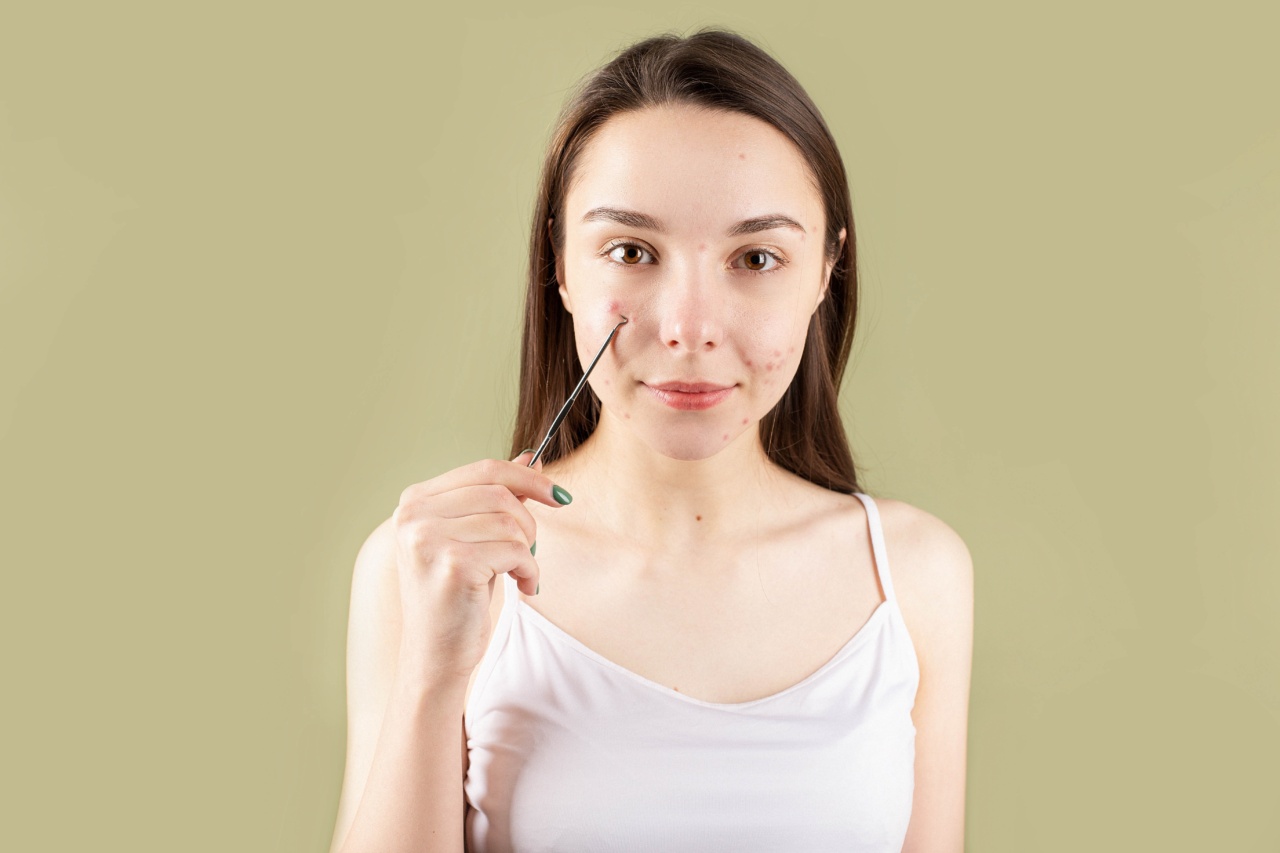Acne is a common skin condition that affects millions of people worldwide. It can be frustrating and embarrassing, leading to a loss of self-confidence.
While there are various types of acne, one particular type that causes significant distress is penon acne. This article aims to delve into the causes and treatment options for penon acne, offering insights and solutions to those who suffer from this condition.
What is Penon Acne?
Penon acne, also known as penile acne or acne on the penis, is a type of acne that develops on the penile skin. This condition is characterized by the presence of pimples, blackheads, whiteheads, or even cysts on the penile shaft, glans, or scrotum.
It may cause discomfort, itching, or pain in some cases. While penon acne is not a severe medical condition, it can significantly impact an individual’s quality of life and sexual well-being.
Causes of Penon Acne
The exact causes of penon acne are not fully understood, but several factors can contribute to its development. Here are some of the primary causes:.
1. Hormonal Imbalances
Hormonal imbalances, similar to those that occur during puberty, can lead to the development of penon acne.
Increased levels of androgens, such as testosterone, can stimulate the sebaceous glands in the penile skin to produce excess oil (sebum), which can clog pores and lead to acne.
2. Poor Hygiene
Inadequate hygiene practices, such as infrequent washing of the genital area, can contribute to the formation of penon acne. Sweat, dirt, and dead skin cells can accumulate, creating an ideal environment for acne-causing bacteria to thrive.
3. Friction and Irritation
Friction and irritation from tight clothing, aggressive masturbation, or sexual activities can irritate the penile skin and trigger acne formation.
The constant rubbing of fabric against the skin can promote inflammation and blockage of the hair follicles.
4. Folliculitis
Folliculitis is a condition characterized by the inflammation of the hair follicles. When hair follicles on the penile skin become infected or inflamed, it can result in penon acne.
Shaving, excessive sweating, or the use of harsh detergents can predispose individuals to folliculitis and subsequent acne development.
5. Poor Diet
A diet high in refined sugars, unhealthy fats, and processed foods can potentially worsen penon acne. Consuming these types of foods can spike blood sugar levels, triggering a cascade of hormonal changes that contribute to acne formation.
6. Stress
Stress does not directly cause penon acne but can exacerbate existing acne or increase the frequency of outbreaks. When the body is under stress, it releases cortisol, a hormone known to increase oil production and inflammation in the skin.
This can lead to the development of acne or worsen existing acne symptoms.
Treatment Options for Penon Acne
Dealing with penon acne can be challenging, but with the right treatment approach, it can be effectively managed. Here are some treatment options to consider:.
1. Proper Hygiene
Practicing good hygiene is crucial in managing penon acne. Daily washing of the genital area with a mild, fragrance-free cleanser can help remove excess oil, sweat, and bacteria. Avoid using harsh soaps or scrubs that can irritate the skin further.
2. Topical Medications
Over-the-counter acne creams or gels containing ingredients such as benzoyl peroxide, salicylic acid, or sulfur can be effective in treating penon acne.
These medications work by reducing oil production, unclogging pores, and fighting acne-causing bacteria. It is essential to follow the instructions and apply the medication regularly for best results.
3. Antibiotics
In severe cases of penon acne or when topical medications fail to provide relief, a dermatologist may prescribe oral antibiotics. Antibiotics help to reduce inflammation and combat bacterial infection, preventing further acne breakouts.
However, long-term use of antibiotics should be avoided to minimize the risk of antibiotic resistance.
4. Retinoids
Topical retinoids, derived from vitamin A, can be beneficial in treating penon acne. They work by unclogging pores, reducing the production of sebum, and promoting the turnover of skin cells.
Retinoids may cause initial skin dryness and irritation, so it is essential to start with a low concentration and gradually increase as tolerated.
5. Lifestyle Modifications
Making lifestyle changes can have a positive impact on penon acne. Avoiding tight-fitting clothing, practicing gentle masturbation techniques, and using lubrication during sexual activities can help reduce friction and irritation on the penile skin.
Additionally, adopting a balanced diet rich in fruits, vegetables, and whole grains while minimizing sugary and processed foods can improve overall skin health.
6. Stress Management
Managing stress levels can significantly improve penon acne. Engaging in stress-reducing activities such as exercise, meditation, or pursuing hobbies can help regulate hormones and reduce the likelihood of acne outbreaks.
Additionally, getting enough sleep and practicing relaxation techniques can contribute to better skin health.
When to Consult a Dermatologist
If penon acne persists despite self-care measures or worsens, it is advisable to seek professional help. Dermatologists are specialized in treating various skin conditions, including penon acne.
They can provide personalized treatment plans and recommend suitable medications or procedures to manage the condition effectively.
Conclusion
Penon acne can be distressing, but understanding its causes and treatment options can empower individuals to take control of their skin health.
Hormonal imbalances, poor hygiene, friction, folliculitis, poor diet, and stress are common factors contributing to penon acne. By practicing proper hygiene, using topical medications, and adopting lifestyle modifications, penon acne can be effectively managed.
It is essential to consult a dermatologist for persistent or severe cases of penon acne to explore further treatment options tailored to individual needs.





























